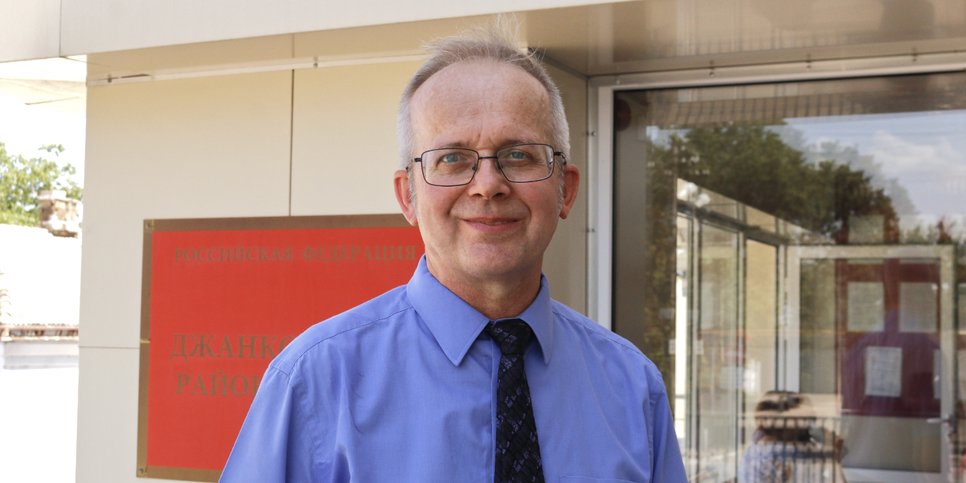Viktor Ursu on the day of sentencing
Viktor Ursu on the day of sentencing
Court in Crimea Sent a Fourth-Generation Jehovah's Witness to Penal Colony for 6 Years
CrimeaFor decades Viktor Ursu's great-grandfather, grandfather and father were persecuted for their faith. Now Viktor has been sent to a penal colony for 6 years. Yelena Nikolayeva, judge of the Dzhankoyskiy District Court, announced the verdict on September 8, 2025. The 60-year-old believer was taken into custody in the courtroom.
"I am not a criminal and not an extremist," Viktor Ursu said. "I have been living in Dzhankoy for more than 50 years, I have been working as a milling machine operator at the same company for 40 years. I look after my parents." Ursu's lawyer noted: "I would describe him as a very kind person from the upper working class. He has excellent references from his employer, who was not afraid to provide the court with documents that he was needed as a specialist in the company."
In July 2023, law enforcement officers searched Viktor Ursu's house. He was placed in a temporary detention facility for 12 days, and then under house arrest for 1 year. To avoid accidentally violating the restrictions imposed by the court, Viktor fenced off the permitted area near his private house with orange tape. Viktor's obedience and goodwill earned him the respect of the staff of the Federal Penitentiary Service. One of the guards said: "If all arrested persons did this, we would have no problems in our work." Throughout most of the time under house arrest, Viktor was forbidden to communicate with his wife of 30 years, Marina. She recalls: "We understood each other just by a look."
The trial lasted a little less than a year. During this time, the court listened to audio recordings of two religious meetings, where the topics of kindness and support were discussed, and also watched 12 hours of videos on Bible themes. A secret witness under the pseudonym Gromov confirmed that Ursu did not call for violence, did not show aggression and did not encourage violation of the law.
At each court hearing, dozens of people supported Viktor. His elderly parents traveled 90 kilometers to all hearings, although they were not always allowed to be present in the courtroom. On such occassions, they sat at the entrance on folding chairs, which Viktor's father, Aleksandr, brought in his car. These trips were not easy for his parents — his mother uses crutches, and the steps to the courthouse are high and slippery. The presence of his parents meant a lot to Viktor: "Although they couldn't change anything, I knew they were on my side. Moral support is very important."
In Crimea, 32 Jehovah's Witnesses have already been subjected to religious repression; 13 of them are serving prison sentences of 6 years or more.

